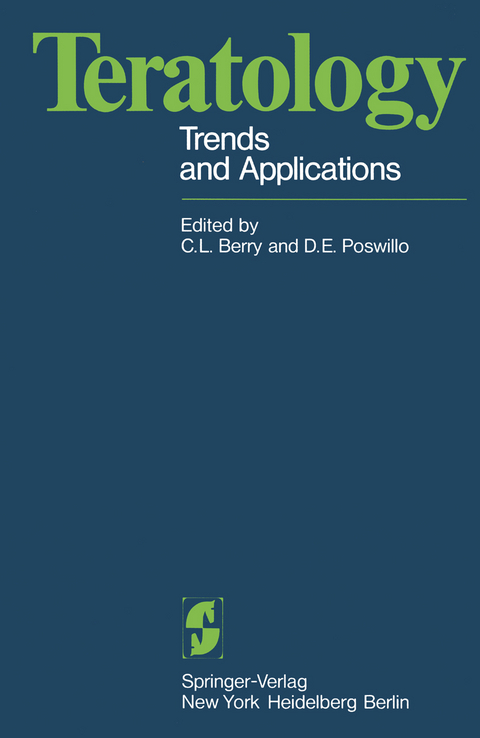
Teratology
Springer Berlin (Verlag)
978-3-642-66174-7 (ISBN)
New Attitudes to Experimental Teratology.- 1. A Developmental Approach to Teratology.- 2. Chromosomal Animal Model of Human Disease. Fetal Trisomy and Developmental Failure.- 3. Animal Models of Major Gene Defects.- 4. Cytotoxic Agents in Teratogenic Research.- Problems of Predictive Teratology.- 5. Polygenic Models in Teratological Testing.- 6. Behavioural Teratology.- 7. Teratological Investigations in Laboratory Primates: Why, When and How to Use Them.- 8. Screening Medicines for Teratogenicity: Problems of Interpretation.- Influencing the Fetal Milieu.- 9. Placental Causes of Maldevelopment.- 10. Future Prospects for Fetal Surgery.- New Aspects of Developmental Teratology.- 11. Morphological and Behavioural Abnormalities Caused by Insults to the CNS in the Perinatal Period.- 12. Polymorphisms: Their Lessons for Human Teratology.- 13. The Impact of Malformation on the Emotional Development of the Child and his Family.
| Erscheint lt. Verlag | 12.11.2011 |
|---|---|
| Zusatzinfo | X, 240 p. |
| Verlagsort | Berlin |
| Sprache | englisch |
| Maße | 170 x 244 mm |
| Gewicht | 447 g |
| Themenwelt | Medizin / Pharmazie ► Medizinische Fachgebiete |
| Studium ► 2. Studienabschnitt (Klinik) ► Humangenetik | |
| Schlagworte | Biology • chromosome • Drugs • Embryo • Embryology • fat • genes • Genetics • growth • Laboratory • Missbildung • Molecular Biology • Obstetrics • pharmacology • Research • Screening |
| ISBN-10 | 3-642-66174-2 / 3642661742 |
| ISBN-13 | 978-3-642-66174-7 / 9783642661747 |
| Zustand | Neuware |
| Informationen gemäß Produktsicherheitsverordnung (GPSR) | |
| Haben Sie eine Frage zum Produkt? |
aus dem Bereich


